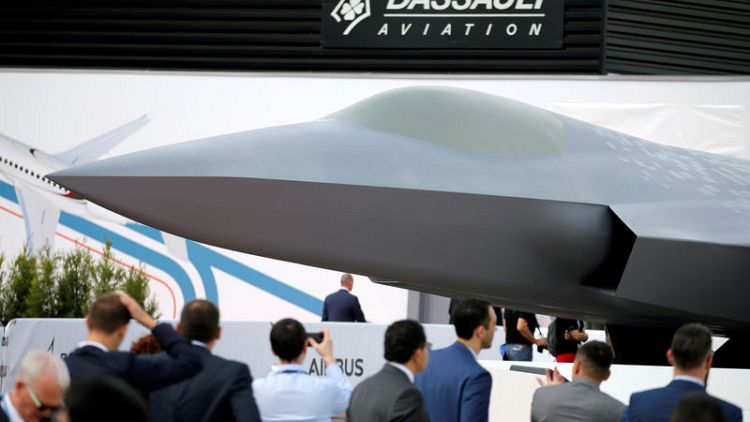By Michel Rose
PARIS (Reuters) - Spain on Monday joined a Franco-German project to design a next-generation fighter jet, an initiative touted as key to ensuring Europe can defend itself without depending on allies in an increasingly uncertain world.
Dassault Aviation and Airbus will build the warplane which is expected to be operational from 2040, with a view to replacing Dassault's Rafale and Germany's Eurofighter over time.
The defence ministers of France, Germany and Spain signed an accord launching a trilateral framework of cooperation at the Paris Airshow, sat in front of a mock-up of the jet and with French President Emmanuel Macron applauding behind them.
France's Safran and Germany's MTU Aero Engines will jointly develop the new warplane's engine.
Dassault and Airbus have delivered a joint industrial proposal to the governments of France and Germany. "The first demonstrator phase marks another decisive step," they said in a joint statement.
France had explored working with Britain on the project, bringing together Europe's two biggest military powers.
But in July 2017, Macron and German Chancellor Angela Merkel announced plans for the new Future Combat Air System (SCAF), including a fighter jet and a range of associated weapons such as drones.
Britain launched its own new fighter jet plan last July, laying bare European divisions and deepening scepticism about the future of European defence cooperation.
The French and German governments expect to invest an initial 4 billion euros (£3.6 billion) in the combat jet by 2025, with France, the project leader, contributing 2.5 billion euros, according to the French defence ministry.
Paris and Berlin target the first flight of a prototype around 2026.
(Reporting by Michel Rose, Sophie Louet; Writing by Richard Lough; Editing by Mark Potter)
